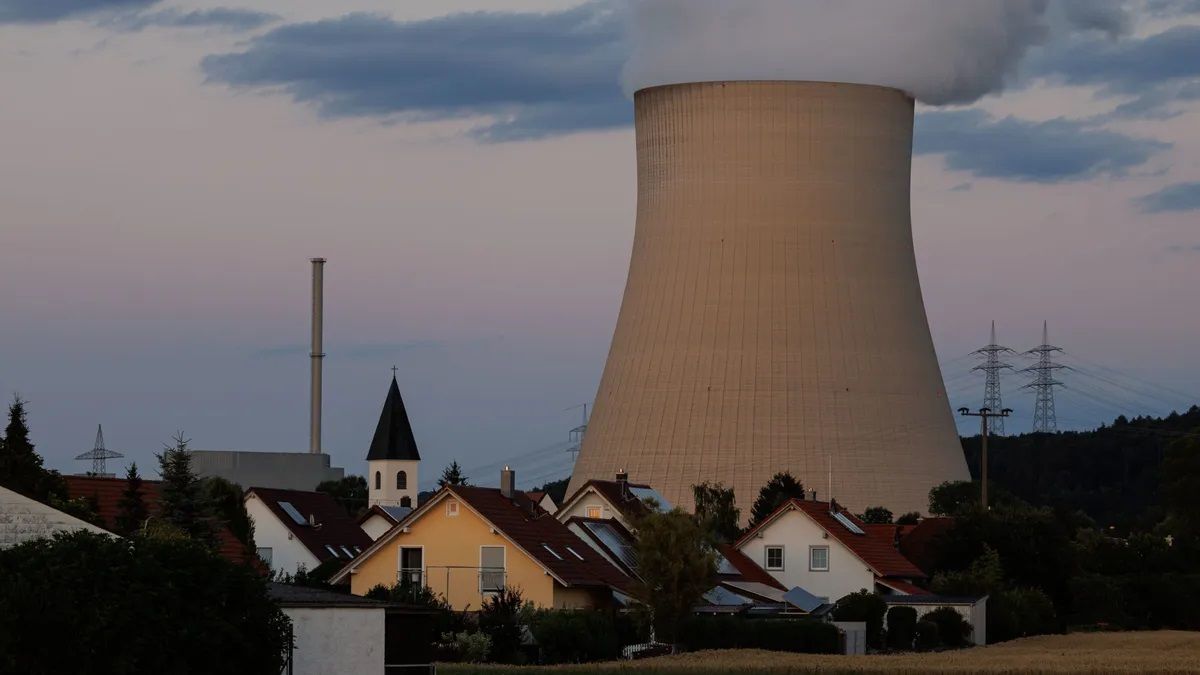The three remaining nuclear power plants in Germany were due to be decommissioned by the end of this year, but two of them will be kept in reserve “until mid-April 2023 in case of need”, said the Minister of Economy, Robert Habeck.
The shift in government policy came after a second stress test to assess the energy security of Germany at a time Russia reduce the gas supply to Europe. But the decision became a “stress test for the coalition” of the social democrats of Chancellor Olaf Scholz, the Greens of Habeck and the liberal PDF.
finance minister Christian Linder, of the FDP, made no secret of its commitment to keeping the three plants operational instead of putting them on standby. “We must not get too demanding, but do everything that makes our lives easier,” he told the Sueddeutsche Zeitung on Monday, saying they should continue to operate until 2024.
Habeck’s decision partially postpones the nuclear exit decided by the former chancellor Angela Merkel after the disaster of the Japanese plant of Fukushima in 2011. The minister said that the issue of nuclear power is “tied with many emotions” but that the partial extension is necessary to avoid a electricity crisis “extremely unlikely.”
Price limits vs commitments assumed
But before him rising electricity bills all possible resources must be mobilized, depending on veronika grimmof the government’s council of economic advisers. “That means not only coal plants, but also nuclear plants,” he told the FAZ daily on Tuesday.
“The plants should remain active, not just on standby as is currently planned, because only then will power prices fall,” he said. He added that the government should examine the extension of the useful life of the plants for five years and even reactivate closed plants to maintain prices “within limits”.
In contrast, Claudia Kemfert of the DIW economic research institute pointed out that “nuclear plants they are not adapted to serve as backups because they cannot be turned on and off easily“.
Meanwhile, the financial daily Handelsblatt reported that the partial extension is “the worst of all possible decisions”. Habeck “avoided the risk of coming into conflict with part of his party,” he noted.
“Let’s go to a energy supply crisis“, declared Friedrich Merz, leader of the opposition CDU to German public radio. Shutting down power generation capacity is “completely absurd,” she said, adding that the crisis caused by the war in ukraine has been aggravated by “the decisions of the federal government.
The Greens in conflict
The extension of atomic plants is a touchy subject for the Greens, whose roots are in the anti nuclear movement from Germany.
The decision was “difficult to take but necessary as it is”, declared the leader of the Greens, Omid Nouripouron public television.
Habeck insisted on Monday that Germany would not back down from its plan to abandon atomic energy. His ministry chartered five floating terminals for the import of liquefied natural gas to replace the Russian supply, the first of which should be operational by the end of the year.
At the same time, it took steps to restart the coal power plants paralyzed and fill gas tanks before winter to avoid a energy deficit.
Source: Ambito
David William is a talented author who has made a name for himself in the world of writing. He is a professional author who writes on a wide range of topics, from general interest to opinion news. David is currently working as a writer at 24 hours worlds where he brings his unique perspective and in-depth research to his articles, making them both informative and engaging.




